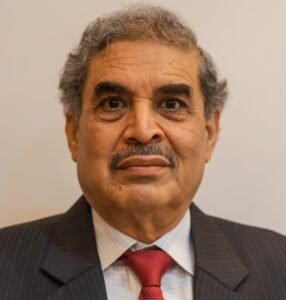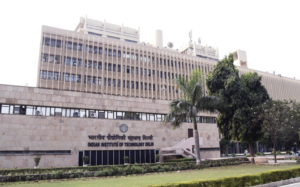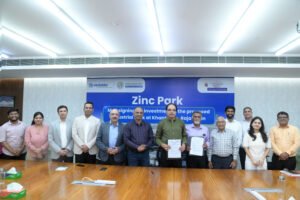Greater Noida (Hridaya Mohan, hridayamohan@yahoo.com): On April 22, 2025, the serene landscapes of Pahalgam in Jammu and Kashmir were marred by a heinous act of violence. Unidentified gunmen opened fire on Indian tourists at Baisaran meadow, resulting in the deaths of at least 26 individuals including two Indian origin foreigners and injuring several others.
The news from Kashmir is grim—another deadly attack, more lives lost and a nation left grappling with grief, anger and frustration. The killings of innocent civilians have once again exposed the festering wound of terrorism in the Valley. But beyond the headlines and the political statements, what does India truly feel? The sentiment across the country is a mix of sorrow, rage and a desperate cry for justice. This attack, targeting civilians in a region known for its hospitality and natural beauty, has sent shockwaves across the nation. The victims, hailing from various parts of India, were on a journey to experience the tranquility of Kashmir—a place often referred to as ‘Paradise on Earth.’
National Outcry and Condemnation
Prime Minister Narendra Modi who is on a 2-day state visit to Saudi Arabia, condemned the attack, emphasizing that those responsible would be brought to justice. He spoke to Union Home Minister Amit Shah and directed him to personally visit the attack site. Shah traveled to Srinagar to assess the situation and coordinate the security response.
“Those behind this heinous act will not be spared… their evil agenda will never succeed,” the PM said on X. “Our resolve to fight terrorism is unshakeable and it will get even stronger.”
Political leaders across the spectrum have expressed their grief and outrage. Chief Minister Omar Abdullah described the incident as “much larger than anything we’ve seen directed at civilians in recent years.” Leader of opposition Rahul Gandhi while condemning the attack said on X, “Instead of making hollow claims of the situation being normal in Jammu and Kashmir, the government should now take accountability and take concrete steps so that such barbaric incidents do not happen in the future and innocent Indians do not lose their lives like this.”
Public Sentiment: Grief, Anger and Resilience
Every time violence strikes Kashmir, it is not just a local tragedy—it is a national loss. The Indian populace is grappling with a mix of sorrow and indignation. Citizens are questioning the security measures in place and demanding accountability to prevent such tragedies in the future. There is a deep, collective mourning, a silent acknowledgment that these deaths are not just statistics but a recurring scar on India’s conscience. Alongside grief, there is fury. The public’s patience is wearing thin. Why, after decades of counter-terror operations, do such attacks still happen? Why do militants continue to strike with such impunity? Social media platforms are inundated with messages of condolence, solidarity and calls for stringent action against those responsible. There is anger toward Pakistan-based terror groups, anger toward local sympathizers and even anger at the government—why hasn’t terrorism been crushed completely?
Impact on Tourism and Regional Stability
Kashmir’s economy, significantly reliant on tourism, faces a daunting challenge. This attack threatens to deter visitors, impacting livelihoods and the region’s socio-economic fabric. Moreover, it underscores the persistent security challenges in the area, despite efforts to promote peace and development.
A Call for Unity, Vigilance and Resolve, Not Just Rhetoric
Today, India is united in grief but divided on solutions. What is clear, however, is that the country will not tolerate terrorism. The sentiment is not just about revenge—it is about justice, security and a future where Kashmir is known for its beauty, not its bloodshed.
In these trying times, it’s imperative for the nation to stand united against forces that seek to disrupt harmony. While mourning the loss of innocent lives, there must be a concerted effort to address the underlying issues that perpetuate such violence. Strengthening security, fostering community engagement and promoting dialogue are essential steps toward ensuring that the beauty of Kashmir is preserved and that its people can live without fear.
The government must act decisively. The people must remain vigilant. And the world must recognize that India’s fight against terror is not just its own—it is a battle for the very idea of a peaceful, democratic society.
The Pahalgam tragedy serves as a stark reminder of the challenges that persist. Yet, it also presents an opportunity for introspection and renewed commitment to building a peaceful and inclusive society.
The nation is watching. The nation is waiting.
About the Author

Mr. Hridaya Mohan is a regular Columnist with a renowned Indian daily “The Hitavada” and some other newspapers / magazines internationally. Superannuated as Executive Director, Steel Authority of India Ltd. (SAIL), he is Senior Adviser, Metallon Holdings Pvt. Ltd. presently. He headed SAIL office at Beijing as Chief Representative (China & Mongolia) for six years. He has published and presented seventeen papers globally. Recipient of “Sir M Visvesvaraya Gold Medal”for one of his papers, “Benchmarking of Maintenance Practices in Steel Industry” from The Institution of Engineers (India), he was awarded with “Scroll of Honour” for the excellent contributions to Engineering fraternity from IE(I), Bhilai, “Jawahar Award” for leadership excellence in SAIL and “Supply Chain Leader – 2017” award from IIMM.









